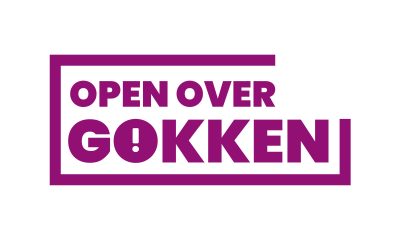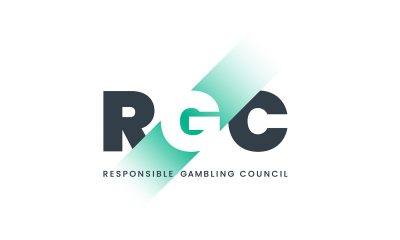Baltics
Court Declares Rīga’s Ban on Gambling Unconstitutional
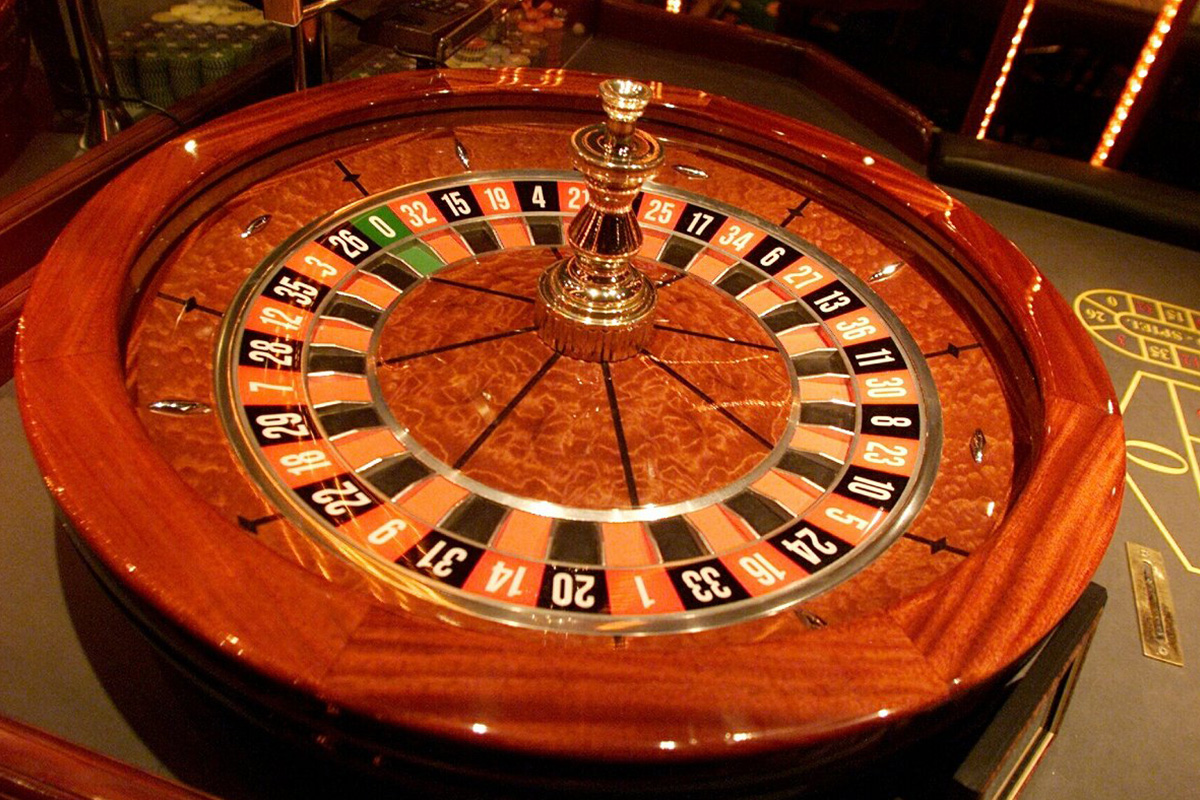
The Constitutional Court of Latvia said on April 4 that it had deemed the restriction on the organisation of gambling throughout Rīga unconstitutional, as the municipality has not justified why gambling is prohibited in the specific areas.
The case was brought before the Constitutional Court following applications by the gambling companies Olympic Casino Latvia Ltd, Alfor Ltd and Joker Ltd. They requested an assessment of the compliance of the Rīga spatial plan with Article 105 of the Constitution, which provides for the right to property that may be restricted only following the law. Compulsory expropriation of property for public needs is only allowed in exceptional cases on the basis of a separate law against fair compensation.
The contested norm provides, however, that the organisation of gambling and the provision of gambling services are prohibited in the entire administrative territory of Rīga, except where such gambling venues are located in four- or five-star hotels.
Six years ago, the Riga City Council decided to close down 42 gambling venues in the city centre, and last September it decided to cancel 139 permits for gambling venues outside the city centre. They must close within five years.
The Constitutional Court found that the organisation of gambling is a legal commercial activity existing in conditions of free competition.
The legislator has given the municipality the competence to assess independently which areas or territories of the municipality should be subject to restrictions on the organisation of gambling. The municipality is also entitled to designate an unlimited number of areas in the spatial plan where gambling is not allowed. However, the municipality must comply with the principle of territorial assessment laid down in the authorisation granted by the legislator.
The Constitutional Court found that the municipality had failed to state reasons why the organisation of gambling was prohibited in the functional zones of the spatial plan, where commercial activities were envisaged as one of the permitted uses of the territory.
In accordance with the principle of assessment of territories laid down in the Law on Gambling, the municipality must assess, for example, in the spatial planning process, the built-up area and the location of infrastructure facilities, the population density, the interests of residents and traders and other relevant aspects which may be the basis for imposing restrictions on the organisation of gambling.
No such assessment has been carried out by the municipality prior to the establishment of restrictions on gambling throughout the territory of Riga.
The Constitutional Court held that the restriction on fundamental rights contained in the contested norm was incompatible with Article 1 and the first, second and third sentences of Article 105 of the Constitution.
The post Court Declares Rīga’s Ban on Gambling Unconstitutional appeared first on European Gaming Industry News.
Baltics
HIPTHER Baltics Launches in Vilnius with Agenda Revealing Lithuania’s 2026 Regulatory Reset

A new Baltic-focused conference era begins on 21 April 2026, uniting iGaming, fintech, compliance, and innovation leaders in Lithuania’s digital-first capital
HIPTHER officially announces the agenda for HIPTHER Baltics: Vilnius 2026, the inaugural event of its newly launched Baltic conference series, taking place 21 April 2026 at the Hilton Garden Inn Vilnius City Centre.
Marking the evolution of the landmark MARE BALTICUM Gaming & TECH Summit, the new HIPTHER Baltics format introduces targeted, country-focused gatherings designed to deliver deeper regulatory insight, stronger regional dialogue, and practical strategic value for decision-makers operating across gaming, fintech, and digital innovation.
At the heart of the Vilnius edition lies a defining theme: Lithuania’s Great Regulatory Reset — a decisive transition toward stricter supervision, strengthened compliance frameworks, and sustainable, quality-driven growth across financial services and iGaming.
Lithuania 2026: From Easy-Access Hub to Compliance-Driven Ecosystem
As Lithuania sharpens oversight across banking, fintech, blockchain, and gaming, the conference agenda explores four structural shifts shaping the market:
- Banking: Cyber-resilience stress testing, the rise of specialised institutions, and a pivot toward sustainable profitability
- Fintech: Account-to-account dominance, international B2B expansion, and the emergence of agentic AI beyond chatbot automation
- Blockchain: Post-MiCA enforcement, strengthened AML leadership requirements, and institutional tokenisation of real-world assets
- iGaming: Advertising restrictions, ISP blocking acceleration, and intensified identity and source-of-funds compliance
Together, these forces signal a new operational reality for regulated digital industries in the Baltics.
Agenda Highlights Across Two Strategic Stages
Stage 1 — Strategy, Compliance & Banking
Key discussions will include:
- Regulators’ Panel: Bank of Lithuania and FNTT on MiCA transition and new iGaming ISP-blocking protocols
- Banking Transformation: How credit unions and specialised banks challenge Nordic incumbents
- Post-MiCA Survival: Maintaining VASP licensing under 2026 regulatory structures
- iGaming Advertising Ban: Operator strategies in a zero-marketing environment
- AML 2.0: Implementing enhanced source-of-wealth requirements for high-stakes players
- Cross-Industry Debate: Can tokenisation solve transparency challenges between blockchain and iGaming?
Stage 2 — Innovation, Blockchain & iGaming Tech
- Agentic AI in Fintech: From conversational tools to autonomous financial advisors
- Tokenising the Real World: Real-estate and debt instruments on-chain in the Baltics
- Next-Generation Payments: A2A integration across gaming and retail ecosystems
- Digital Euro & CBDCs: Technical readiness for the European Central Bank’s 2026 roadmap
A Boutique Summit Built for Decision-Makers
HIPTHER Baltics: Vilnius 2026 will gather 100+ senior attendees, 30+ expert speakers, and 15+ key industry topics in a one-day, high-impact format combining:
- High-level regulatory and industry panels
- Curated networking among operators, fintech leaders, regulators, legal experts, and investors
- A premium, centrally located boutique conference environment
The event is designed for iGaming operators, fintech and payment providers, compliance professionals, regulators, affiliates, startups, and regional investors seeking actionable intelligence in a rapidly tightening regulatory landscape.
From MARE BALTICUM Legacy to HIPTHER Baltics Future
Reflecting on the transition, Zoltán Tűndik, Co-Founder & Head of Business at HIPTHER, stated:
“Lithuania is entering one of the most defining regulatory transitions in its modern digital economy. With HIPTHER Baltics in Vilnius, we are creating a focused platform where regulators, financial institutions, fintech innovators, and iGaming leaders can engage in honest, high-level dialogue about what sustainable growth truly means in 2026 and beyond.”
With HIPTHER Baltics launching in Vilnius, the Baltic region enters a new phase of dialogue — closer to local markets, deeper in expertise, and stronger in cross-industry collaboration.
The journey begins in Vilnius on 21 April 2026.
The post HIPTHER Baltics Launches in Vilnius with Agenda Revealing Lithuania’s 2026 Regulatory Reset appeared first on Eastern European Gaming | Global iGaming & Tech Intelligence Hub.
Amusnet
Amusnet Enters into Strategic Partnership with Twinsbet Arena in Vilnius, Lithuania
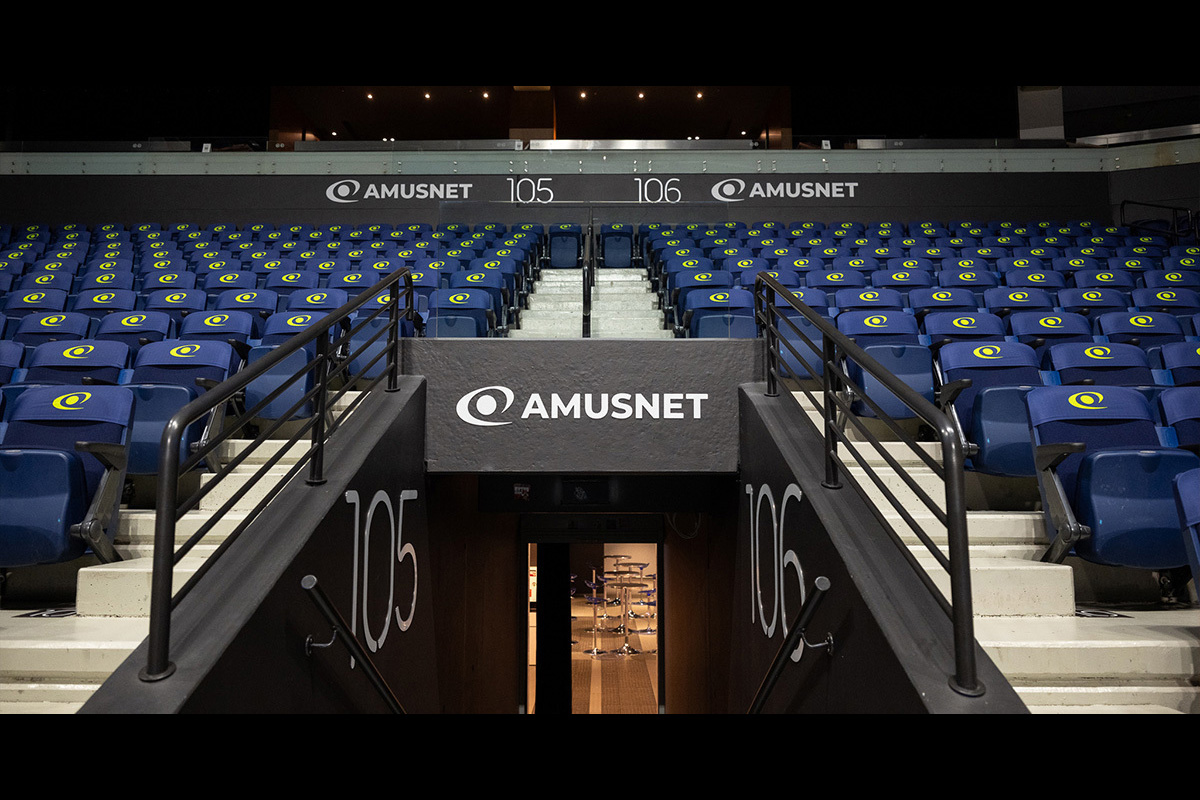
Amusnet has expanded its international brand presence through a new strategic partnership with the landmark Twinsbet Arena in Vilnius, Lithuania.
As Lithuania’s largest and most established events venue, Twinsbet Arena hosts approximately 100 major concerts, sporting events and international productions annually. The partnership positions Amusnet within one of the country’s most prominent entertainment venues, reinforcing the company’s commitment to high-visibility, premium collaborations.
The agreement includes brand integration across the Arena environment and with one of the venue’s exclusive hospitality spaces, now operating as the Amusnet Lounge. The premium area offers guests dedicated access, refined hospitality services and exceptional views during live events, further associating the Amusnet brand with elevated audience experiences.
“The former Premium Lounge club will now operate as the ‘Amusnet Lounge’. Guests attending any event who purchase tickets in this club sector will enjoy additional benefits, including a dedicated entrance, complimentary cloakroom service, access to a unique hospitality space, premium snacks and beverages, and some of the best sightlines in the arena,” said Aneta Lauciuvienė, Head of Sales at Twinsbet Arena.
Ivo Georgiev, CEO of Amusnet, said: “Our partnership with Twinsbet Arena reflects Amusnet’s strategic vision to align with iconic venues and institutions that shape their national entertainment landscapes. This collaboration strengthens our brand presence in Lithuania and positions Amusnet at the heart of a venue that brings together global performers, premier sporting events, and diverse audiences. We view this as a long-term partnership built on shared ambition and sustained value creation.”
Through this strategic collaboration, Amusnet further strengthens its international brand positioning and deepens its presence in one of the Baltic region’s most dynamic markets.
The post Amusnet Enters into Strategic Partnership with Twinsbet Arena in Vilnius, Lithuania appeared first on Eastern European Gaming | Global iGaming & Tech Intelligence Hub.
Baltic & Nordics Gaming Awards 2026
Nominations Now Open for the HIPTHER Baltic & Nordics Gaming Awards 2026
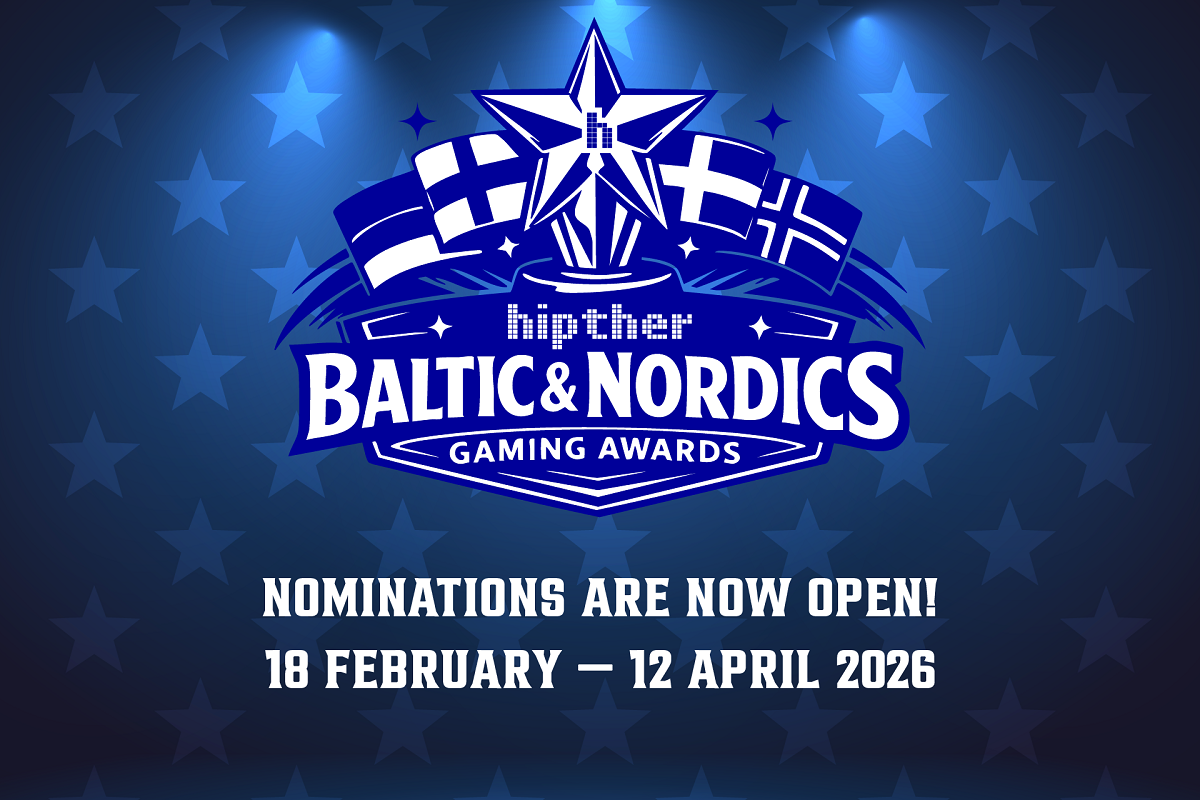
Recognising Excellence Across the Baltics & Nordics
The spotlight is officially on!
HIPTHER has opened nominations for the Baltic & Nordics Gaming Awards 2026, the region’s defining celebration of innovation, leadership, and operational excellence across the gaming and technology ecosystem.
From pioneering operators and cutting-edge suppliers to infrastructure leaders and visionary individuals, the awards honour the companies and people shaping the future of regulated gaming across the Baltic and Nordic regions.
And this year, the journey culminates on a single stage.
Winners will be revealed on 2 June 2026 in Tallinn, during the prestigious Awards Ceremony & Closing Party of HIPTHER Baltic & Nordics: Tallinn — the grand finale of the HIPTHER Baltics 2026 conference series.
One region. One stage. One official awards night.
Key Dates to Remember
- Nomination period: 18 February – 12 April 2026
- Online voting session: 21 – 30 April 2026
- Shortlist announcement: 5 May 2026
- Final decision: 29 May 2026 – Secret Jury Vote
- Winners announced: 2 June 2026 – Tallinn Awards Ceremony
Part of the HIPTHER Baltics 2026 Journey
The Awards form the grand finale of HIPTHER BALTICS 2026 – Three Capitals, One Vision, a high-level regional conference series exploring regulation, fintech, compliance, and innovation across three Baltic capitals:
- Vilnius – 21 April 2026
iGaming Regulation & Fintech Integration - Riga – 11 May 2026
Cross-Border Compliance & Player Protection - Tallinn – 2 June 2026
Digital Governance & Startup Innovation
+ Baltic & Nordics Gaming Awards Ceremony
Together, the series delivers HIPTHER’s signature blend of policy insight, technological vision, and meaningful networking — culminating in the region’s most anticipated awards night.
Award Categories Across Six Industry Pillars
The 2026 edition features a comprehensive structure recognising excellence across:
- Baltics – Operators
- Nordics – Operators
- Suppliers – Casino & Content
- Suppliers – Sports & Odds
- Connected & Infrastructure
- Individual Industry Awards
This multi-layered approach ensures recognition not only for market leaders, but also for rising innovators, technology disruptors, and influential personalities driving the sector forward.
Why These Awards Matter
The Baltic and Nordic regions continue to stand at the forefront of regulation, digital governance, fintech integration, and responsible innovation in global gaming.
The HIPTHER Baltic & Nordics Gaming Awards serve as:
- A benchmark of trust and excellence
- A platform for regional and international visibility
- A celebration of the people and technologies shaping tomorrow’s industry
In short — recognition here resonates far beyond the stage.
Submit Your Nomination
Industry stakeholders, partners, and community members are invited to nominate the companies and leaders defining excellence in 2026.
Nominations are open until 12 April 2026.
 Submit your nominations here.
Submit your nominations here.
Join the journey toward Tallinn — and be part of the night where the region’s finest step into the spotlight!
The post Nominations Now Open for the HIPTHER Baltic & Nordics Gaming Awards 2026 appeared first on Eastern European Gaming | Global iGaming & Tech Intelligence Hub.
-

 Blueprint Gaming5 days ago
Blueprint Gaming5 days agoBlueprint Gaming unleashes Frankenstein’s Fortune blending dynamic modifiers with multi-path bonus offering
-

 Compliance Updates7 days ago
Compliance Updates7 days agoHow to Apply for a Finnish iGaming License: Gaming in Finland Webinar on Application Steps and Technical Standards
-

 Big Daddy Gaming7 days ago
Big Daddy Gaming7 days agoBig Daddy Gaming® Expands European Footprint After MGA Licence Approval
-

 Latest News4 days ago
Latest News4 days agoGGBET UA hosts Media Game – an open FC Dynamo Kyiv training session with journalists from sports publications
-

 Compliance Updates5 days ago
Compliance Updates5 days agoMGA Publishes Results of Thematic Review on Self-exclusion Practices in Online Gaming Sector
-

 Amusnet6 days ago
Amusnet6 days agoAmusnet Unveils Casino Engineering and Technology Milestones Achieved in 2025
-

 Brais Pena Chief Strategy Officer at Easygo7 days ago
Brais Pena Chief Strategy Officer at Easygo7 days agoStake Goes Live in Denmark Following Five-Year Licence Approval
-

 Dan Brown5 days ago
Dan Brown5 days agoGames Global and Foxium return to the Colosseum in Rome Fight for Gold the Tiger’s Rage™









